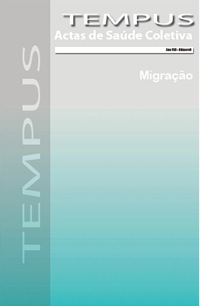Abstract
The Graduation Agreement Student Program (PEC-G) was created in 1965 and is part of international cooperation in the field of education, under the responsibility of the Ministry of Education and the Ministry of Foreign Affairs of Brazil. The University of Brasilia received 81 PEC-G students in 2019 and, although the program has existed for decades, little is known about the living conditions and human rights of these students. This research aims to understand to what extent the human rights of students from African countries linked to the PEC-G of UnB are being contemplated and what are the possible repercussions on the health of these subjects. It constitutes an action research, with a qualitative approach, developed in 2018, through 05 Photography and Human Rights Workshops, based on the method of the Migrant Lives Parallel Project (PVP). The research instruments adopted were workshops, audiovisual / photographic records, voice records and field diaries. The data were processed through two phases of analysis, in accordance with the referred method, which includes content analysis. The results indicate that the human rights of migrant students linked to the PEC-G are not yet fully addressed. It is noted that the difficulties of access to food, housing and health are present and significantly affect the lives and permanence of these students during their training in Brazil. This situation generates several repercussions on the health and daily life of these subjects, especially mental health.

